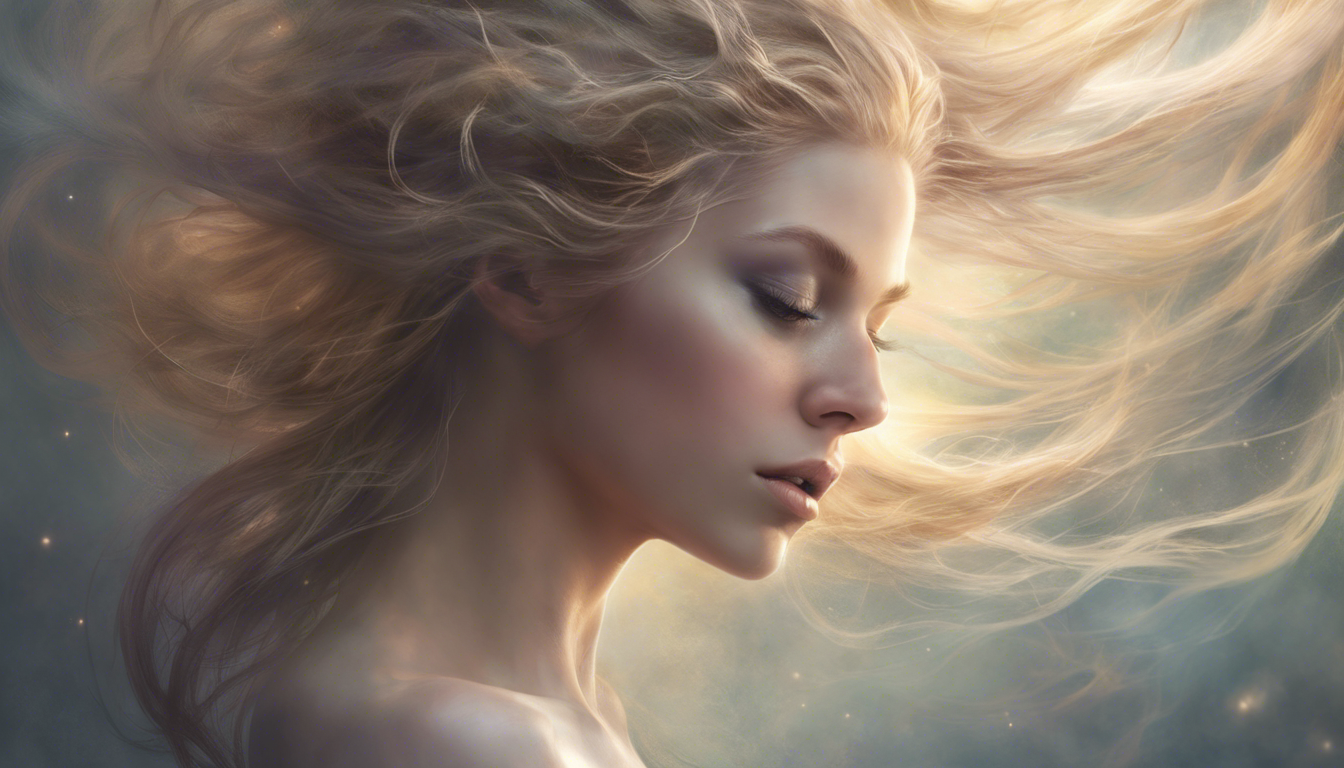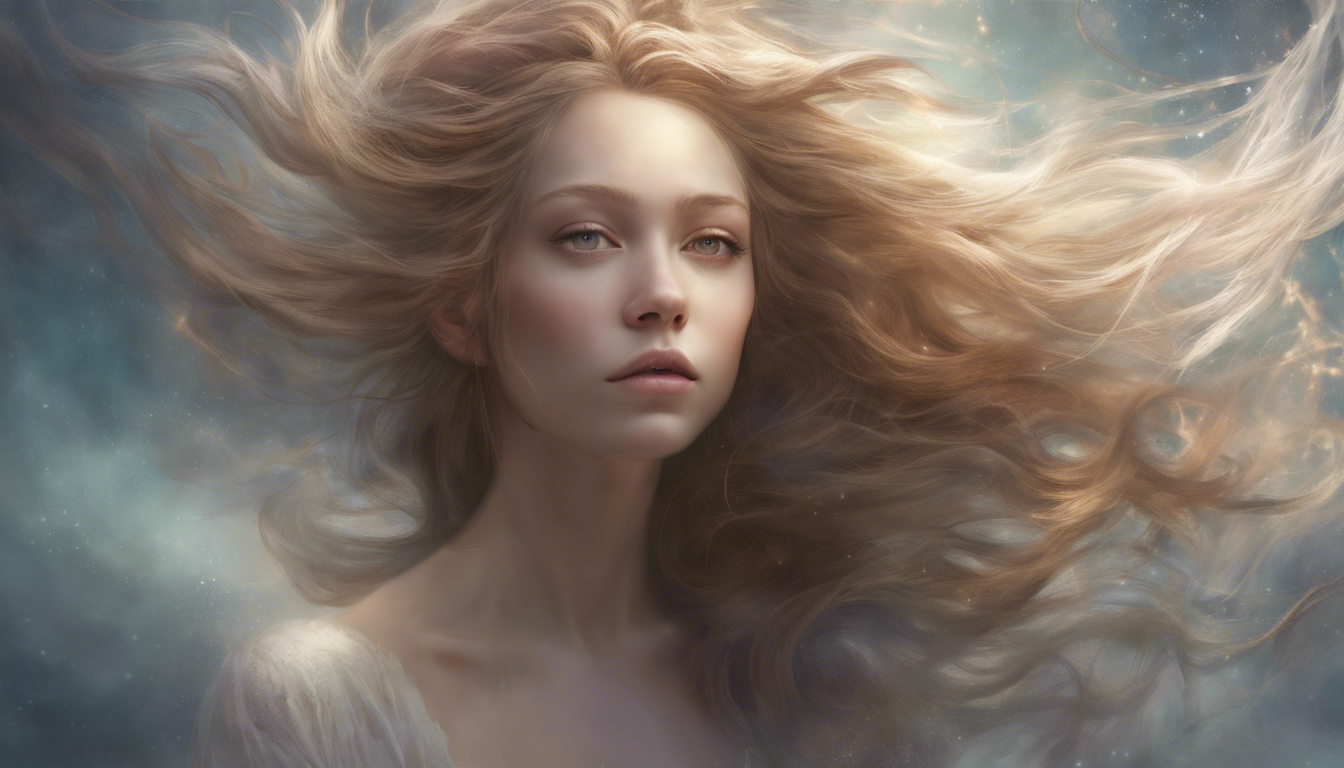Why is hair such a powerful symbol? Explore the cultural, spiritual, and personal significance of hair in this intriguing article.
The Historical Significance of Hair

Throughout history, hair has held a significant role in cultures across the globe. From ancient civilizations to modern societies, the way individuals style, cut, and groom their hair has often been a reflection of social status, beliefs, and customs.
ancient civilizations and symbolism
In ancient Egypt, hair was seen as a symbol of wealth and power. Pharaohs and royalty adorned themselves with intricate hairstyles and wigs made from precious materials. In contrast, slaves and lower-class individuals often kept their hair short or shaved as a sign of servitude.
In ancient Greece, hair was associated with beauty and youth. Women often styled their hair in elaborate braids or curls and adorned them with flowers or ribbons. Men, on the other hand, kept their hair short and groomed as a sign of masculinity and discipline.
medieval europe and religious symbolism
During medieval times in Europe, hair played a significant role in religious symbolism. Nuns and monks shaved their heads as a sign of humility and devotion to God. Meanwhile, the nobility often wore elaborate hair styles adorned with jewels and accessories to signify their status and wealth.
the victorian era and societal norms
In the Victorian era, hair symbolized modesty and virtue. Women were expected to have long, flowing hair that they styled in intricate updos. Men, on the other hand, kept their hair short and well-groomed to convey a sense of respectability and professionalism.
modern times and self-expression
Today, hair continues to be a powerful form of self-expression. From vibrant colors to bold cuts, individuals use their hair as a way to showcase their personality and individuality. Hair has become a canvas for creativity and a means of challenging societal norms and expectations.
In conclusion, the historical significance of hair is deeply intertwined with cultural, social, and religious beliefs. It serves as a meaningful symbol of identity and expression, reflecting the values and norms of the time.
Cultural and Social Meanings Attached to Hair

Throughout history, hair has held significant cultural and social meanings, often symbolizing various aspects of identity, belief systems, and societal roles.
Personal Expression and Identity
*Hair* serves as a powerful tool for personal expression, allowing individuals to showcase their unique style, personality, and cultural heritage. Different hairstyles, colors, and cuts can communicate a wide range of messages, from rebelliousness to tradition, from creativity to conformity.
Symbolism in Different Cultures
In many cultures, *hair* plays a central role in cultural practices and rituals. For example, in some Indigenous communities, long hair is seen as a symbol of strength, wisdom, and connection to the land. In Hindu culture, the placement and style of hair indicate one’s marital status and religious beliefs.
Gender and *Hair*
The significance of *hair* in relation to gender norms and expectations is also evident. In many societies, *hair* has been used to reinforce gender binaries, with long hair often associated with femininity and short hair with masculinity. However, the evolving understanding of gender identity has challenged these traditional notions, leading to more diverse and inclusive representations of *hair* styles.
Spiritual and Symbolic Meanings
*Hair* holds spiritual significance in various belief systems. For instance, in some spiritual practices, cutting one’s *hair* symbolizes a fresh start or spiritual renewal. Alternatively, uncut *hair* may be viewed as a sign of devotion or connection to a higher power.
Social Status and *Hair*
In certain societies, *hair* has been tied to social status and wealth. Elaborate hairstyles or hair accessories have historically been reserved for the elite, while simpler styles were more common among the lower classes. Today, *hair* remains a symbol of socio-economic status, with trends in hair care and styling reflecting cultural values and beauty standards.
In conclusion, *hair* carries a wealth of cultural and social meanings that extend far beyond mere appearance. Understanding the diverse symbolisms attached to *hair* enriches our appreciation of the complexities of human identity and societal structures.
The Psychological Impact of Hair on Identity

hair: the psychological impact of hair on identity
hair plays a significant role in shaping one’s identity and can have a powerful psychological impact on individuals. whether long and flowing, short and bold, or colored in vibrant hues, our hair is often a reflection of our personality, culture, and self-expression.
self-esteem and confidence
hair can greatly influence a person’s self-esteem and confidence. individuals who are satisfied with their hair often feel more self-assured and attractive, while those experiencing hair loss or dissatisfaction with their hair may struggle with feelings of insecurity and low self-worth.
cultural significance
hair holds deep cultural significance in many societies. different hairstyles and hair rituals can convey social status, religious beliefs, or belonging to a particular group. for example, braided hairstyles symbolize cultural heritage and unity in many african communities.
gender identity
hair plays a crucial role in defining gender identity. traditional gender norms have often associated long hair with femininity and short hair with masculinity. however, contemporary society challenges these stereotypes, allowing individuals to express their gender identity through diverse hair styles.
self-expression
hairstyling is a form of self-expression, allowing individuals to showcase their creativity and uniqueness. experimenting with different hair colors, cuts, and textures enables people to communicate their personality and individuality to the world.
emotional attachment
many people develop a strong emotional attachment to their hair, considering it an integral part of their identity. cutting or styling one’s hair can be a deeply emotional experience, representing personal growth, change, or a desire to start anew.
in conclusion, hair plays a multifaceted role in shaping our identity and influencing how we perceive ourselves and are perceived by others. understanding the psychological impact of hair can help us appreciate its significance and use it as a tool for self-expression and empowerment.
The Role of Hair in Gender Expression and Sexuality
Hair plays a significant role in how individuals express their gender identity and sexuality. Across different cultures and time periods, hair has been used as a means of communicating various messages about one’s gender, sexuality, and individuality.
hair and gender expression
Hair has long been associated with traditional gender norms. For example, in many cultures, long hair is often seen as feminine, while short hair is viewed as more masculine. However, these norms are changing as society becomes more accepting of diverse gender expressions. Many individuals now use their hair as a way to defy traditional gender norms and express their true selves.
diversity in hair styles
The wide range of hairstyles and colors available today allows individuals to experiment with their hair in ways that were not possible before. Some may choose bold colors or intricate hairstyles to make a statement about their gender identity or sexuality, while others may opt for more subtle changes. The versatility of hair provides a canvas for self-expression and exploration.
hair care and self-care
Taking care of one’s hair can also be a form of self-care and empowerment. Whether it’s through a relaxing hair care routine or a bold new hair change, individuals can boost their confidence and sense of self through their hair. Additionally, the act of styling hair can be a meditative practice or a form of creativity for many.
challenges and stereotypes
Despite the progress made in accepting diverse hair expressions, challenges and stereotypes still exist. Individuals with non-conforming hairstyles may face discrimination or judgment based on outdated gender norms. It is important for society to continue challenging these stereotypes and embracing the diverse ways in which individuals choose to express their gender and sexuality through their hair.
In conclusion, hair plays a multifaceted role in gender expression and sexuality. It serves as a powerful tool for self-expression, empowerment, and identity. By recognizing the significance of hair in these aspects of individuality, we can continue to promote inclusivity and diversity in our understanding of gender and sexuality.


Article written by Dera
Greetings, I am Dera, a 35-year-old individual with a deep passion for spirituality. Through my website, I aim to share my insights and knowledge to help others on their spiritual journey. Join me on the path to inner peace and enlightenment.